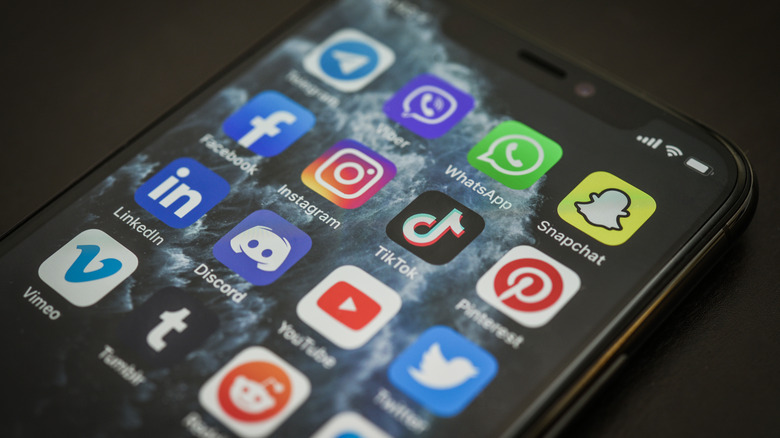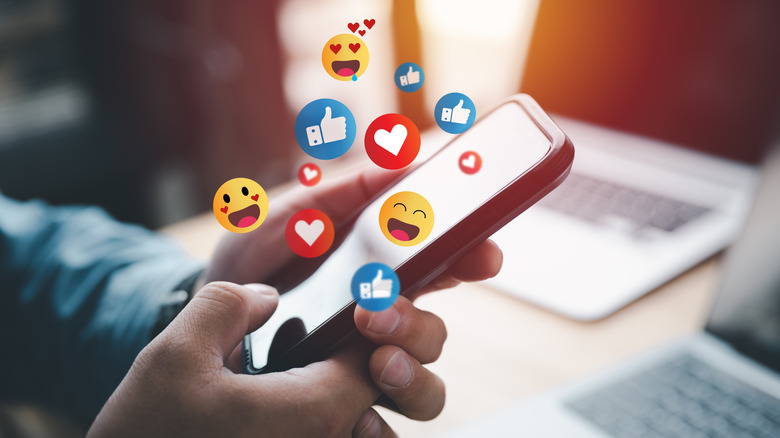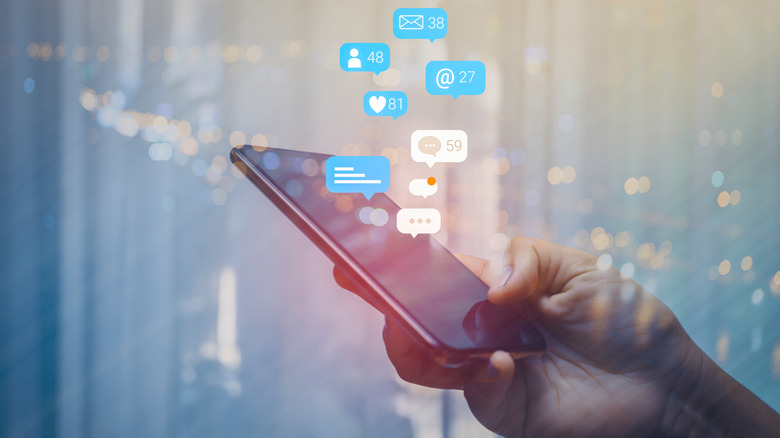How Many Hours Should You Be Spending On Social Media?
Social media is an integral part of everyday life. From Instagram and Facebook to Twitter and TikTok, many people toggle between the apps multiple times a day to see what's going on within their own private circles and the greater world around them. Most of the time, this behavior is reflexive. If you have a few minutes when you're waiting for the train or you're between meetings, you instinctively pick up your phone and start to scroll.
In small bursts, scrolling through social media sparks joy, raises dopamine levels, and helps you connect with others. Most people spend more than the recommended time on these social media platforms, though, which ultimately makes the scrolling more detrimental than beneficial. Numerous studies suggest that social media negatively impacts your self-image and mental health, particularly if you're spending several hours per day on these apps.
So how much time should you be spending on social media per day? Keep reading to find out what experts say.
Spending more than three hours on social media per day affects your mental health
While it seems inconsequential to scroll through Instagram and Facebook for hours, the short-term and long-term effects on your brain suggest otherwise. According to a paper published by JAMA Psychiatry, U.S. teenagers who spent more than three hours per day on social media had a 60% higher risk of mental health problems compared to teenagers who didn't engage with the apps at all.
This three-hour threshold is generally considered the suggested cutoff for all social media users, as anything beyond this period of time starts to greatly impair the way you view yourself and the way you handle your anxieties and stresses. Studies found that increased social media engagement directly impacts your internalization process, per Inverse. Consequently, the more time you spend on social media, the more you internalize emotions such as anxiety, depression, and loneliness.
Kira Riehm, one of the leading authors of the JAMA Psychiatry paper, explains this phenomenon. "This pattern of findings may be explained by a number of potential mechanisms, including exposure to cyberbullying, poor quality sleep, or exposure to idealized self-presentations, which have been found in other studies to be associated with depressive and anxiety symptoms," she said (via Inverse). Though this is more prevalent in teens, the same pattern is identifiable in adults as well.
Too much social media use leads to adverse health effects
If you spend more than three hours per day on social media, you put yourself at risk of developing several adverse health effects. Not only does it increase your feelings of depression, anxiety, and isolation, but the time spent scrolling can have a physical effect on your body. According to Forbes, people who engage with social media more often — and who generally spend too much time in front of a screen — are more likely to experience weight gain and are at higher risk of developing certain health conditions, like heart disease and diabetes (via John Hopkins Medicine).
This is because the more time you spend in front of a screen, the more time you spend engaging in sedentary behavior. Studies suggest that when you adopt this lazy lifestyle, you begin to develop a slew of physical impairments. Social media plays a big part in this, particularly when you consider the fact that the average American spent over 1,300 hours on social media within the last year alone (via Uswitch).
Three hours per day is the absolute maximum amount of time you should be spending on social media to avoid these issues, but psychiatry experts believe that the actual amount of time you should engage with these apps is much, much lower.
Ideally, you should only spend 30 minutes on social media per day
According to the Journal of Social and Clinical Psychology, limiting your social media engagement to 30 minutes per day leads to better mental health and positively impacts your overall well-being. The study suggests spending approximately 10 minutes on three separate social media apps per day so that you still maintain engagement without tilting too far in the wrong direction. Participants in the study who abided by this 30-minute rule reported lower levels of anxiety, depression, and stress, and they indicated that they didn't experience FOMO (fear of missing out) nearly as often (via HuffPost).
Melissa Hunt, one of the lead psychologists on the study, explained the findings to Science Daily. "Some of the existing literature on social media suggests there's an enormous amount of social comparison that happens," she said. "When you look at other people's lives, particularly on Instagram, it's easy to conclude that everyone else's life is cooler or better than yours."
The less time you spend on social media, the less likely you are to compare yourself to others and engage in detrimental behavior. It may feel unrealistic to only spend 30 minutes per day across all social media platforms, but even taking a temporary break to try this out could lead to a variety of mental health benefits, so it's worth a shot to see how it improves your well-being.



